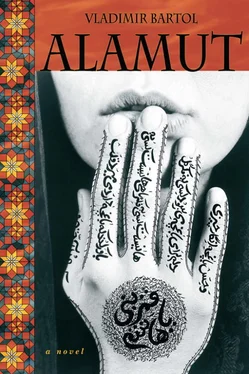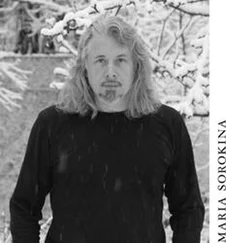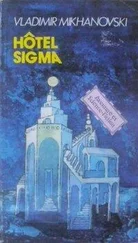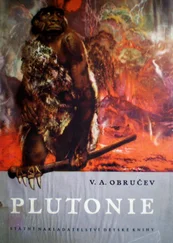Vladimir Bartol - Alamut
Здесь есть возможность читать онлайн «Vladimir Bartol - Alamut» весь текст электронной книги совершенно бесплатно (целиком полную версию без сокращений). В некоторых случаях можно слушать аудио, скачать через торрент в формате fb2 и присутствует краткое содержание. Город: Berkeley, Год выпуска: 2012, ISBN: 2012, Издательство: North Atlantic Books, Жанр: Историческая проза, на английском языке. Описание произведения, (предисловие) а так же отзывы посетителей доступны на портале библиотеки ЛибКат.
- Название:Alamut
- Автор:
- Издательство:North Atlantic Books
- Жанр:
- Год:2012
- Город:Berkeley
- ISBN:9781583946954
- Рейтинг книги:2.8 / 5. Голосов: 5
-
Избранное:Добавить в избранное
- Отзывы:
-
Ваша оценка:
- 60
- 1
- 2
- 3
- 4
- 5
Alamut: краткое содержание, описание и аннотация
Предлагаем к чтению аннотацию, описание, краткое содержание или предисловие (зависит от того, что написал сам автор книги «Alamut»). Если вы не нашли необходимую информацию о книге — напишите в комментариях, мы постараемся отыскать её.
Alamut — читать онлайн бесплатно полную книгу (весь текст) целиком
Ниже представлен текст книги, разбитый по страницам. Система сохранения места последней прочитанной страницы, позволяет с удобством читать онлайн бесплатно книгу «Alamut», без необходимости каждый раз заново искать на чём Вы остановились. Поставьте закладку, и сможете в любой момент перейти на страницу, на которой закончили чтение.
Интервал:
Закладка:
He clenched his fists and buried his head in them.
“My mother is very old,” Yusuf said, brushing his heavy paw across his eyes. “She has a hard time tending the livestock and pastures, and I’m afraid the neighbors cheat her because she’s all alone. Why did I ever leave her?”
“That’s right, why?” ibn Tahir asked.
“It was her wish. She said to me, ‘You’re a strong Pahlavan, my son. The Prophet himself would be proud of you. And if your father, who cherished the martyr Ali more than anything in the world—if your father were still alive, he’d surely send you to study the true faith with one of the dais who serve the true caliph …’ At that time the grand dai Husein Alkeini was traveling through our area, recruiting for Our Master. I went to him and he sent me here, to Alamut.”
“And you, Naim, what brought you to the fortress?” ibn Tahir pursued.
“My village isn’t far from here,” Naim replied. “I heard that a powerful dai at Alamut was assembling an army to lead against the infidel sultan. Back home we were all true believers, so my father didn’t have any objection to my leaving to serve Sayyiduna.”
“And you, Suleiman?”
“What is there to say? People were saying there was going to be a war and that a grand dai who had caused a lot of miracles to happen had taken over Alamut in the name of the caliph of Egypt, and that he was planning to attack the sultan from there. ‘Things are going to happen here, Suleiman,’ I told myself. Dai Abdul Malik was traveling through our area and I joined him.”
“Our clan had always been faithful to Ali,” Obeida said. “There were nine of us brothers and someone had to leave home. I asked my father and he gave me his blessing.”
“How about you, Jafar?”
“I studied the Koran, the Sunna and the history of Islam scrupulously, and I realized that Ali had been wrongly deprived of the Prophet’s legacy, and that the caliph of Baghdad was unjustly occupying the regent’s throne. An Ismaili dai visited our area—it turned out to be our superior, Abu Soraka—and I had some learned discussions with him. I agreed with his teachings and I asked my father for permission to go with the missionary. When he heard that my teacher was headed for Alamut, to join Sayyiduna, he gladly consented. People were already saying about our supreme commander that he was a very holy man.”
These conversations helped them get over their homesickness, their feelings of loneliness and their isolation from the world. When the sound of the horn roused them from their sleep the next morning, the vulnerabilities of the evening were already forgotten. The cold water in which they washed was a foretaste of the new day’s rigor. Once again they stood with both feet firmly in Alamut. Their only concern was whether they would be able to answer their teachers’ questions well and whether their superiors’ expectations would be too great. Their spirits untroubled and high, they devoted themselves to working for the Ismaili cause.
One morning, when the novices and Manuchehr returned to Alamut from their maneuvers, Abu Soraka addressed them.
“Today you have a free day. The dais from the surrounding fortresses have come to get further instructions from the supreme commander. Also, we will report to them on your successes and failures. Keep quiet and use the time to study.”
The novices were overjoyed. They ran to their sleeping quarters to fetch their tablets and notes. Some of them took them out onto the ramparts, while others, more curious, sat around the courtyard in the shade of the buildings and kept a watchful eye on the building of the supreme commander.
The guard out front had been reinforced. The black spear carriers stood as motionless as statues. From time to time some dai or other would dart past, dressed in his ceremonial white cloak. The novices would immediately whisper to each other whatever they knew about him. If it was someone they didn’t recognize, they would try to guess who it might be.
There was a commotion in front of the guard tower on the lower terrace. A group of horsemen had ridden in through the main gate. Soldiers bounded toward them and held their horses so they could dismount. An unassuming little man in a billowy cloak who had jumped off a short, shaggy white horse hurried up the steps, surrounded by others who followed him with evident respect.
“Abu Ali! The grand dai! I know him,” Suleiman exclaimed, instinctively rising to his feet.
“Let’s get out of here,” Yusuf proposed.
“No, let’s wait!” ibn Tahir said. “I’d like to see him close up.”
In the meantime the group had drawn closer to them. Soldiers who happened to be nearby were turning toward the new arrival and bowing respectfully.
“They’re all of them dais,” Suleiman whispered, his voice trembling excitedly. “Abu Ali went to get them himself.”
“Look! Dai Ibrahim and dai Abdul Malik are in the crowd,” Yusuf exclaimed.
In his billowy cloak Abu Ali strode across the terrace with great dignity, his whole body swaying solemnly as he went. He smiled affably at the soldiers saluting him. It was obvious he was aware of how much a friendly smile from him meant to his devotees. His face was covered with wrinkles. A sparse, grayish beard and drooping mustache to match surrounded his almost toothless mouth. When he walked past the novices, they bowed to him tautly. His little eyes beamed with joy. He drew one hand out from beneath his cloak and waved kindly to them. He bore an uncanny resemblance to a little old woman.
When the group of dais had gone past, the novices straightened back up.
“Did you see! We were the only ones he waved to!” Suleiman exclaimed, his voice shaking with happiness. “Abu Ali is second only to Sayyiduna!”
“It’s a shame he isn’t a little more imposing,” Yusuf suggested.
“Do you really think intelligence depends on height?” Naim countered.
“Looking at you, I could believe it.”
“I like his simplicity,” ibn Tahir said. “He smiled at us as if we were all old friends of his.”
“Even so, he has a lot of dignity,” Naim continued.
“He’s a learned and accomplished man,” Suleiman observed. “But I can’t imagine he was ever much of a soldier.”
“Could that be because he didn’t come storming in with a saber?” Naim said angrily. “Most of the dais I’ve seen have a frail appearance. They’re the leaders, and the muscular louts are their helpers.”
“I’d like to see Abdul Malik get his hands on them,” Suleiman snorted. “Then we’d see how frail the dais are.”
“What does Sayyiduna look like?” ibn Tahir asked.
They looked at each other.
Naim spoke.
“Nobody has ever told us.”
The great assembly hall occupied almost all of the ground floor of an entire wing of the supreme commander’s building. All morning long teachers, missionaries and other Ismaili dignitaries congregated there. They came from Rudbar and Qazvin, Damagan and Shahdur, and even from far-off Khuzestan, where grand dai Husein Alkeini led the Ismaili cause. As they waited for instructions from the supreme commander, they chatted with the locals and exchanged news with each other.
Heavy curtains covered the windows. The candles of numerous chandeliers illuminated the hall. Set atop tall stands in the corners were pans with resin, from which small flames flickered and crackled, sending a pleasant, heady scent throughout the room.
Beneath one of these lamp stands several people had gathered around the Greek Theodoros. These included the military commander of the castle at Rudbar, Captain ibn Ismail, the portly and whimsical dai Zakariya, and the young Egyptian Obeidallah, who knew the doctor from his days in Cairo. They were in a jocular mood, and laughter frequently punctuated their conversation.
Читать дальшеИнтервал:
Закладка:
Похожие книги на «Alamut»
Представляем Вашему вниманию похожие книги на «Alamut» списком для выбора. Мы отобрали схожую по названию и смыслу литературу в надежде предоставить читателям больше вариантов отыскать новые, интересные, ещё непрочитанные произведения.
Обсуждение, отзывы о книге «Alamut» и просто собственные мнения читателей. Оставьте ваши комментарии, напишите, что Вы думаете о произведении, его смысле или главных героях. Укажите что конкретно понравилось, а что нет, и почему Вы так считаете.












